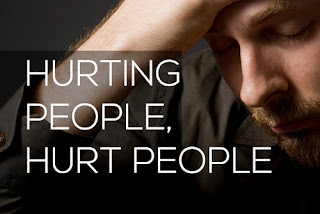New Year's Resolutions for Codependents

If you suffer from Codependency, you are most likely an ISFJ like I am, or an INFJ. I share attributes of both. This story from the website Introvert, Dear hits the nail on the head. Hello, 2020. New decade, new you — or something like that. Here’s the New Year’s resolution I believe will take each introverted Myers-Briggs personality type to the next level. (What’s your personality type? Take a free personality assessment .) The New Year’s Resolution for Each Introverted Type ISTJ — I resolve to stop picking up other peoples’ slack. Known for their unwavering work ethic, ISTJs get things done, whether it’s on the job, at home, or behind the scenes on the PTA committee . Dutiful and committed, they may feel restless lounging around, or really, whenever there’s no clear goal in sight. Want to locate an ISTJ? Just listen for the sound of items swiftly being crossed off a to-do list. How do they do it? A Sensing personality , the ISTJ’s mother tongue is prac





